
MENUMENU
TALK TO AN EXPERT
Special Hours: 7AM – 6PM PST
TALK TO AN EXPERT
Special Hours: 7AM – 6PM PST
Living an off-grid life can be exciting in so many ways. The freedom, the solitude, the ability to connect with nature and enjoy your land as you see fit. These are just a few reasons people opt for off-grid living. But alongside these perks are big challenges, none bigger than ensuring reliable access to clean water. So what do you need to know about off-grid water systems? Fill up your glass, and we’ll take a deep dive into these critical features.
An off grid water system is a catchall term for any of the various methods used to provide running water similar to the kind you’d find in a traditional house, but without relying on water utilities. These systems typically go in properties in remote locations that don’t have municipal water lines nearby. In many cases, they may also be independently powered apart from the electric grid, either by choice or necessity.
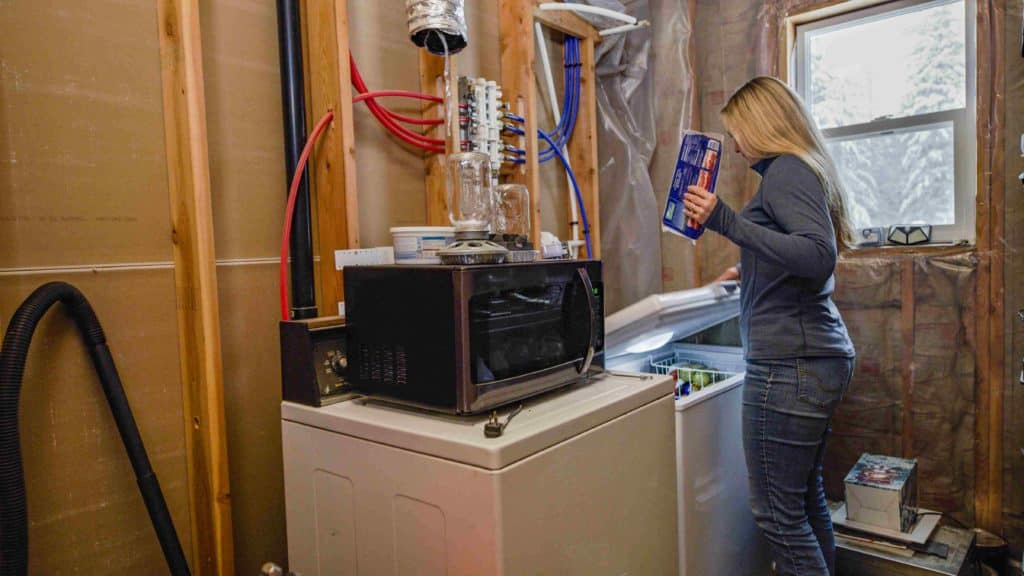
Before getting your water running you need a reliable source of water. Getting water for an off grid property is no different than how municipal supplies do it, just on a much smaller scale. Let’s take a look at a few different approaches to gathering water.
Ultimately all freshwater on land comes from rain. Rainwaters are nature’s natural filter that removes salt, minerals, and most impurities. As rain falls it seeps into the ground or runs in streams and rivers. Many municipal water supplies use dams to create reservoirs, or drill wells to suck the water out of the ground.
However, some off-grid properties use direct rainwater collection. In rainy climates, some may harvest rainwater for some or all of their off-grid water needs. These systems consist of specialized roofing, gutters, filters, and other equipment to ensure their water diverts safely for storage.
Using average rainfall numbers it’s pretty easy to calculate how much rain you can collect in your location. However, any location can experience drought and long periods without rain could leave you with a dry tank.
Pro Tip: Some places are easier to live off grid than others, learn about the best places in our article all about locations.
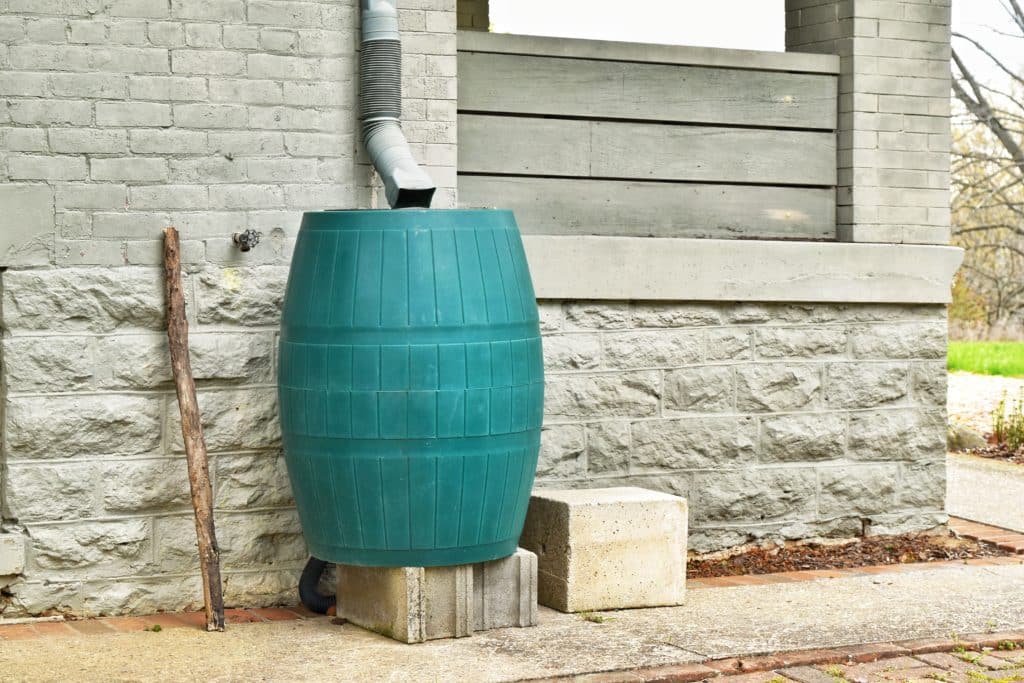
Some locations may be lucky enough to have a stream, river, spring, or other natural sources of potable water. You should always confirm it’s safe to drink before using it and boil or treat it. These off-gridders can manually fetch water by hand or build a diversion channel or canal to divert water to a storage tank. However, extended dry periods could put your water availability at risk as streams can dry up.
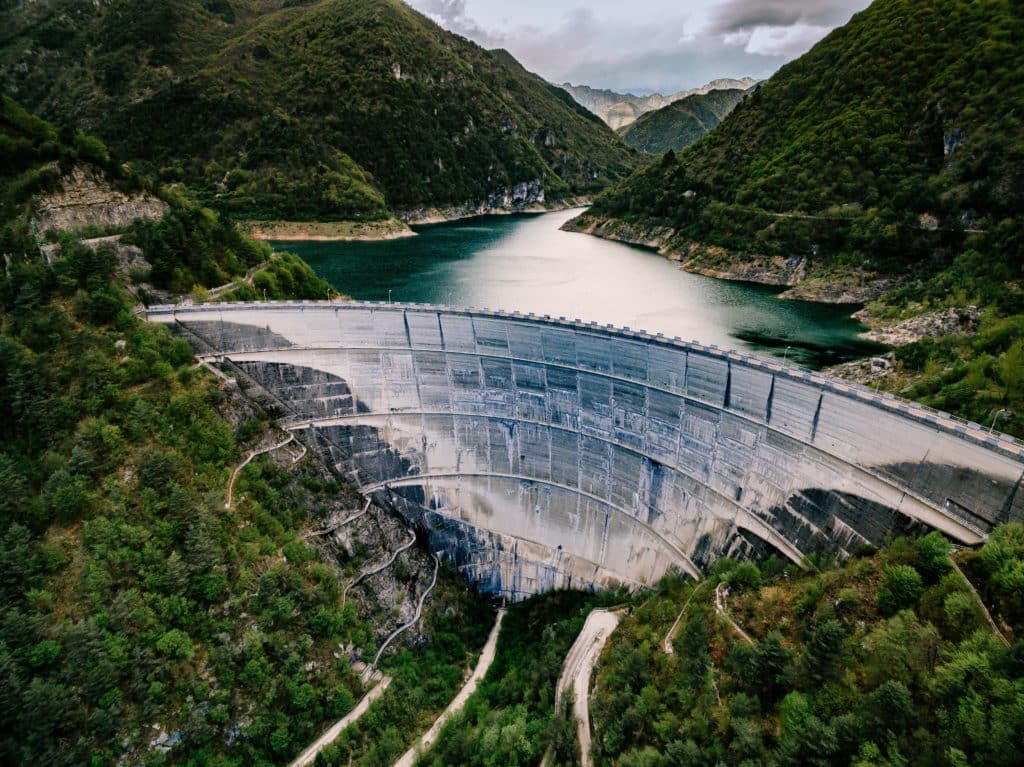
Others may invest in drilling a drinking-water well. This will tend to be one of the most expensive solutions, especially in places where the water table is deep. However, it’s also one of the most reliable ways to ensure you have access to clean water.
Groundwater is once again rain that has seeped into the earth and has been filtered naturally by rock and sediments. While this can eliminate most pathogens, groundwater may contain excess minerals and other impurities depending on the location.
While groundwater may be the most reliable source of water it tends to require the most energy. You will typically need a powerful source of electricity to pump your water.
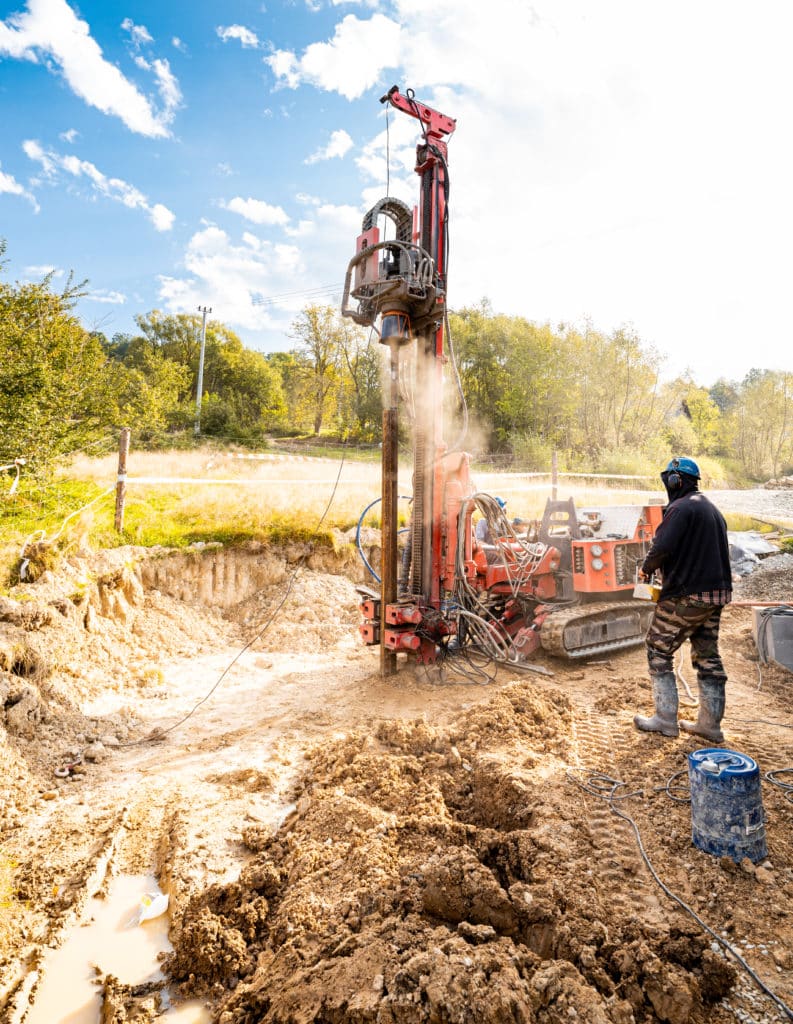
If all else fails, some people who live off the grid will have their water trucked in or otherwise transported from elsewhere. Depending on your location and water needs, a water truck may not be practical as an off-grid water system. Still, you can always transport filled small to medium water tanks yourself if you have a truck or trailer. This can be an expensive ongoing cost, not to mention a hassle.
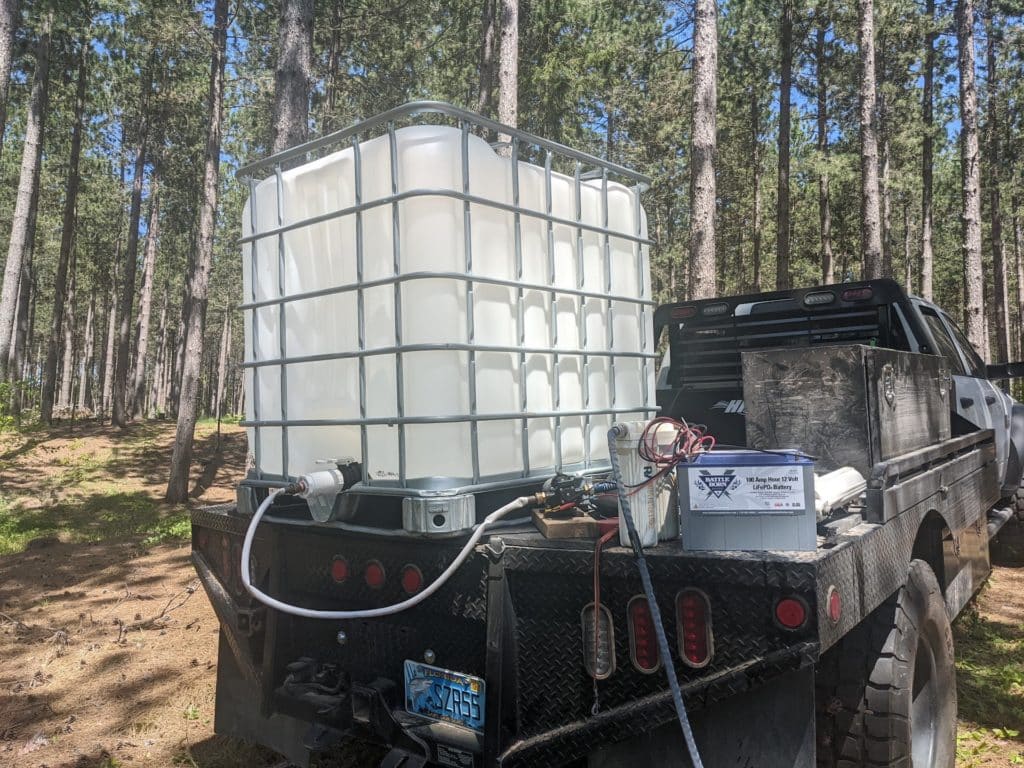
If you are procuring off-grid water then it’s also essential to have off-grid power. Luckily there are more options available to generate and store energy than ever before.
What’s best for your location may vary depending on climate, topography, local rules or regulations, and other factors. But for most off-grid power users, solar offers the best features and versatility. With a manageable amount of solar panels, users can fully power their water system and many more devices. Even properties in areas not typically thought of as solar power-friendly can generate more energy than you might expect.
In contrast, wind power generally isn’t feasible in many parts of the country. This is simply because the wind doesn’t blow fast enough and consistently enough to meet your power needs. Microhydropower is another option but impractical in most locations due to the lack of a suitable stream or creek.
Because these sources of off-grid power are not consistent it’s critical to have a good battery system to store your energy when your not producing it. Here at Battle Born we specialize in energy storage and have many customers operating off grid power systems with our batteries. These systems reliably power pumps to provide running water to their users.
Pro Tip: Thinking of going off grid? Take a look at our article about the 5 biggest challenges to learn more!
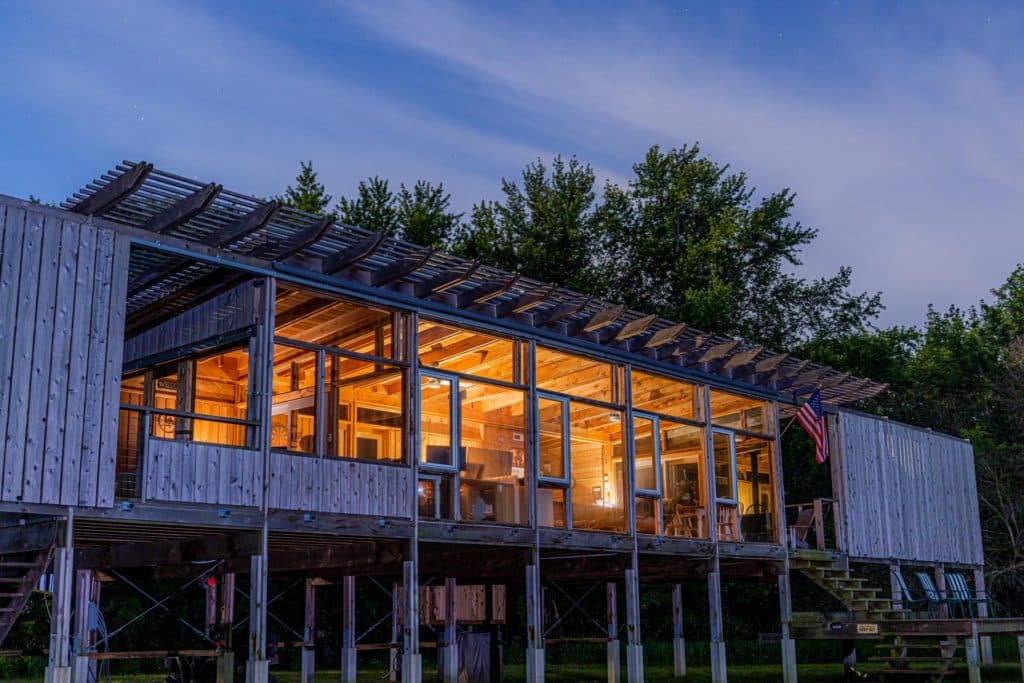
This will depend on how many people are living in your home, your budget, and how careful you plan to be with water. Government estimates show the average person uses 80-100 gallons of water per day in a typical “on-grid” home.
On the opposite extreme, many experts say those preserving water should set aside a minimum of one gallon per person daily. Assuming your off-grid life falls between these two extremes, your estimated usage would be 60-80 gallons per person per day on the high end, 30-60 gallons in the middle, and as few as 5-10 for ultraconservative residents.
With all this in mind, most off-grid water systems should include a tank of 400-500 gallons at a minimum. This will give singles, couples, and small families ample supply, even if your water source is temporarily interrupted. If your budget allows and your needs dictate, you may want to increase your tank size to 1,000 gallons or more. This ensures you’ll seldom have to worry about running out of water.
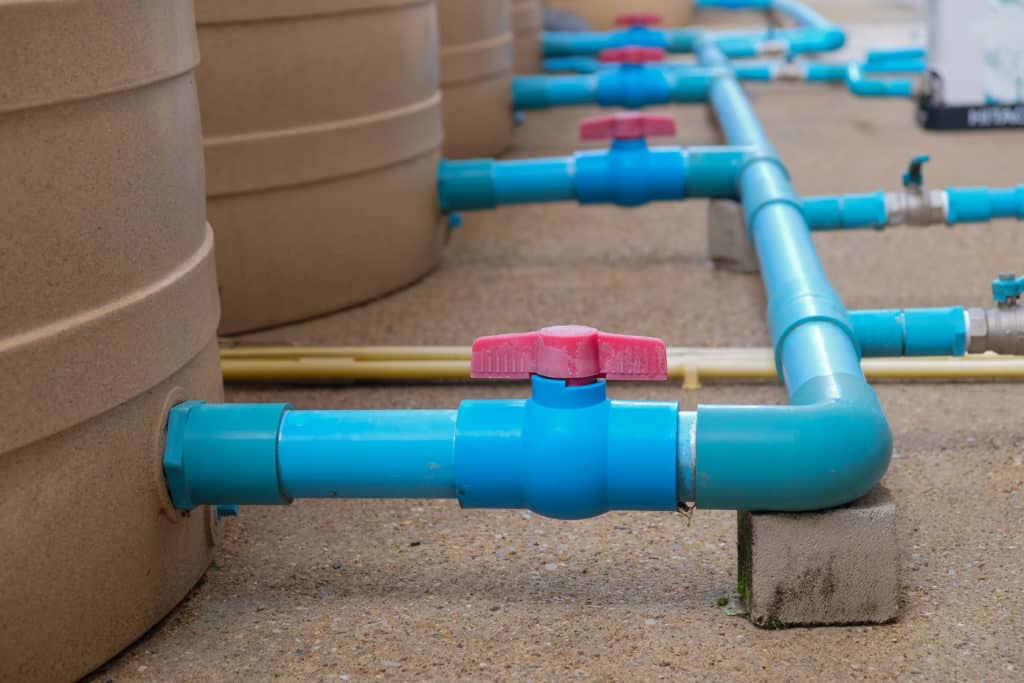
Filtration will depend on the type of water you are collecting and how you are storing it. Some sources such as groundwater from a sealed drinking water well will not need filtration. Others like water collection from a stream or rainwater from a roof may need extensive filtration.
Usually, filtration involves different types of filters starting from coarse to very fine. For example rainwater collected off a roof might have leaves, sticks or other debris in it that should be captured by a large mesh, then usually the water filters through midsized rocks, then sand. Sometimes a multi-tank system is used to collect the water partially filtered, then use a pump to force water through additional filters into the main storage tank.
While it’s a good idea to filter your water before storing it in a tank its also a good idea to filter it coming out. In addition, water that is used for drinking should have an additional level of filtration to make sure all pathogens are removed. Filters like reverse osmosis or UV sanitization systems can make sure your off grid water is safe for consumption.
The WHO publishes great information on water filtration and safety for off grid small water systems.
Gravity-powered off grid water systems are among the simplest, lowest-tech ways to provide running water with adequate water pressure. In these setups, the water storage tank sits above the home or structure using it. You can achieve this by installing the tank up a hill if the property allows, building a tower, or installing it on the roof.
When you use your water, gravity will push it out of the tank, providing the pressure you need. Water can either be filtered or treated before entering the tank or before it reaches your faucet through in-line filters or purifiers. This method requires minimum electricity, making it one of the best choices for sites with small off-grid electrical system.
Still, sites with electricity can benefit from gravity water systems as well. For example, you can use an electric water pump to fill your storage tank from your source when power is available (like during the day for solar). By using the gravity system, you can cut the power you use compared to using the pump every time you need water.
The best strategy to avoid freezing will depend on your climate and water system. In some cases, users can bury their water storage tank below the frost line. This will use the earth to insulate your tank from air temperatures, which typically drop much lower than underground temperatures. Incidentally, this will also keep your water cool during warmer months, when the ground stays cooler than the air. When possible, bury your water lines as well.
In some cases, this won’t be possible due to logistics or other concerns. Here, you should insulate any exposed tanks or lines with waterproof insulation. This can provide a few precious extra degrees to help avoid icing over your off grid water system.
For those willing to invest a bit more, high-tech systems can pump warmed glycol along water lines and around tanks. This will require a power source but can help avoid freezes even when the temperature drops significantly below zero.
Pro Tip: Off grid in cold weather? Take a look at our article about the most efficient off-grid heating methods.
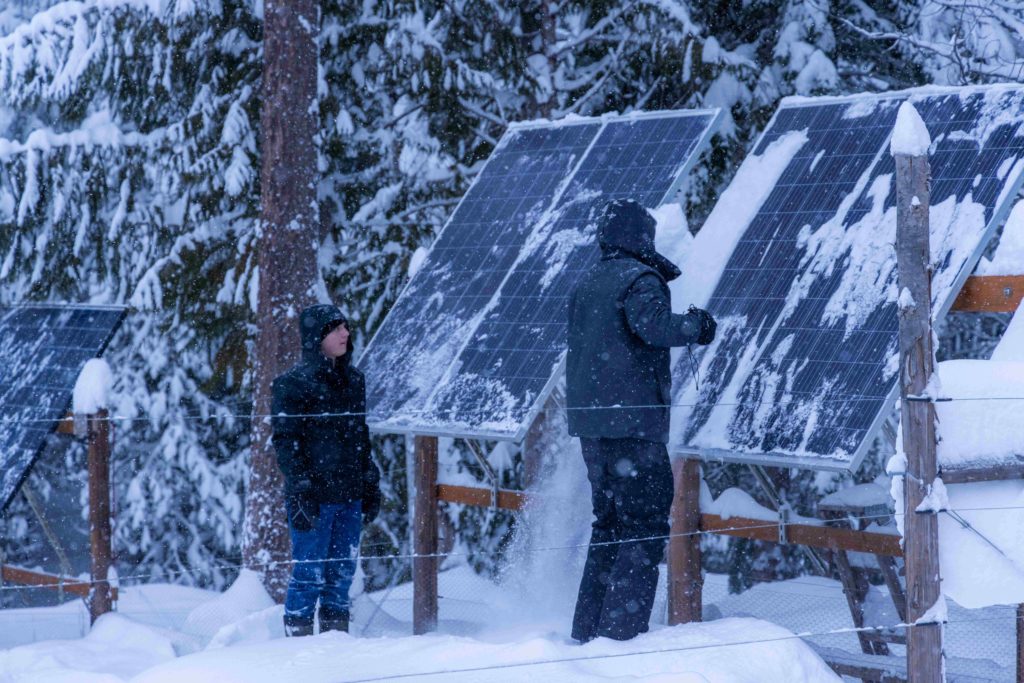
In most cases, those with access to municipal water systems should take advantage of it. With a typically nominal cost, the ease of hooking up your home to reliable, treated water is well worth it for most folks.
Still, off grid water systems are absolutely essential for those without this convenience. Whether you’re collecting rainwater, using a sophisticated electric pumping mechanism, or relying on a simple gravity-powered one, these systems all help provide vital water to sites that would otherwise be uninhabitable. For those who’d like to build in these often beautiful and remote locations, off grid water systems are worth their weight in gold.
We know that building or upgrading an electrical system can be overwhelming, so we’re here to help. Our Reno, Nevada-based sales and customer service team is standing by at (855) 292-2831 to take your questions!
Also, join us on Facebook, Instagram, and YouTube to learn more about how lithium battery systems can power your lifestyle, see how others have built their systems, and gain the confidence to get out there and stay out there.
Shop Best Sellers








Ask a technical specialist now at 855.292.2831
Stay in the Know